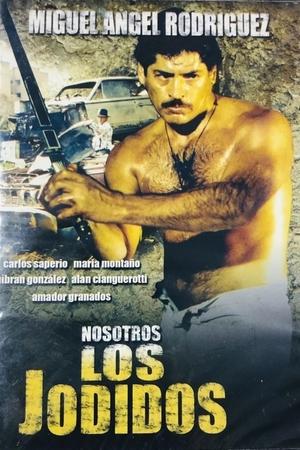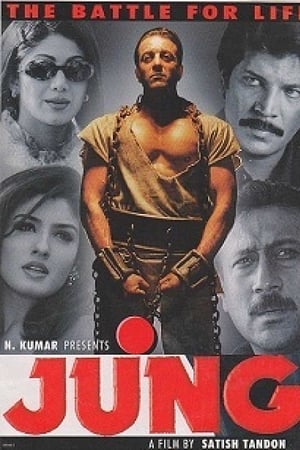
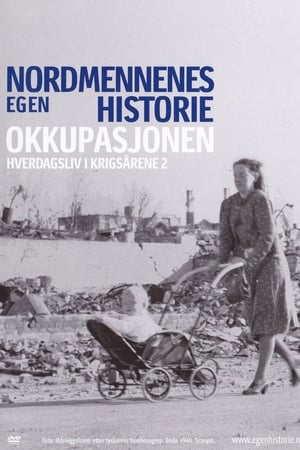
Nordmennenes Egen Historie - Okkupasjonen(2006)
Movie: Nordmennenes Egen Historie - Okkupasjonen
Top 3 Billed Cast
Stemmer / Narrator
Stemmer / Narrator
Stemmer / Narrator

Nordmennenes Egen Historie - Okkupasjonen
HomePage
Overview
Release Date
2006-01-01
Average
8
Rating:
4.0 startsTagline
Genres
Languages:
NorskKeywords
Recommendations Movies
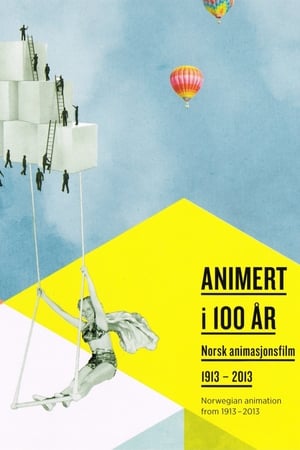 7.0
7.0Animert i 100 år 1913-2013(no)
Norwegian film institute celebrates 100 years of Norwegian animated film with the release Animated for 100 years. Animated in 100 Years 1913-2013, is a unique collection of 34 films on Blu-ray. This is a celebration of Norwegian animation film with a broad presentation of various films, techniques and directors. The collection spans 100 years of imaginative film and reflects the technical development and diversity of Norwegian animation. Here is Roald Amundsen On The South Pole (1913), which is one of the first animation made in Norway, the early Caprino film Music in the Attic (1950), Morten Skalleruds The Year along the Abandoned Road (1991), which has been voted the best Norwegian short film of all time, the Oscar winner The Danish Poet (2006) and Anita Killis; Angry Man (2009).
 5.9
5.9Station Six-Sahara(en)
A beautiful blonde joins a small group of men running an oil station in the Sahara Desert and starts the emotions soaring.
 7.5
7.5Ten from Your Show of Shows(en)
Ten comedy sketches compiled from the 1950s TV series, "Your Show of Shows."
 5.5
5.5The Last Resort(tl)
Journey with Robert and Emily, a couple teetering on the edge of separation. Determined to rekindle their fading romance, they heed the counsel of their marriage therapist, embarking on a weekend getaway to a secluded, private resort.
 6.6
6.6White Shadows in the South Seas(en)
An alcoholic doctor on a Polynesian island, disgusted by white exploitation of the natives, finds himself marooned on a pristinely beautiful island.
 10.0
10.0WWE Hall of Fame 2011(en)
Sports Entertainment's most legendary superstars including Shawn Michaels, Jim Duggan, and more enter the WWE Hall of Fame Class of 2011!
 9.5
9.5Autumn(en)
Jay, Mia, and Pitar were three friends who loved exploring the beauty of nature, especially during the autumn season. Their story unfolds over three special journeys, each capturing the warmth of friendship and the beauty of autumn. Their first journey took Jay and Mia to Frensham Great Pond, a beloved spot surrounded by vibrant autumn trees. As they walked along the water's edge, the cool breeze and golden leaves filled them with joy. They laughed, skipped stones, and admired the reflections of amber and red across the pond. For their second adventure, Pitar joined Jay and Mia at Sandy Hill in Aldershot, one of the highest points in the area. From the top, they could see all of Aldershot and even Farnborough in the distance. Standing above it all, they felt a deep sense of freedom and awe as they looked out at the rolling autumn landscape below. Their third journey led them to Tice's Meadow Nature Reserve in Surrey. Known for its peaceful trails and abundant wildlife,
 7.3
7.3The Thin Line(ja)
Tashiro coincidentally meets his best friend Sugimoto in a bar very close to the apartment in which Sugimoto’s wayward wife is found dead. Although Tashiro is not a suspect in the police investigation, he is racked with guilt and confesses to his wife, Masako. In an effort to further relieve his tortured sense of guilt, he then confesses to Sugimoto. Neither his wife nor his friend can believe that he could have been involved.
 9.4
9.4Change(en)
I was somewhere between the beggining and the end of life. After winter became spring, and summer became fall, and fall winter again. I always knew change would be constant.
 6.7
6.7Barbie(en)
Barbie comes home from shopping. She takes her groceries out of the bag and unwraps a little Barbie doll. She fries up the Barbie doll and eats it.
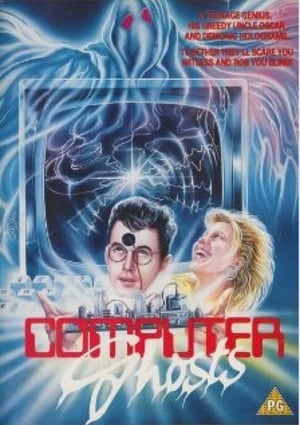 2.6
2.6Computer Ghosts(en)
A security company conjures up fake computer-generated "ghosts" so they can buy abandoned property at below-market value at auctions. However, a mysterious couple appear out of seemingly nowhere to thwart the company's plans.
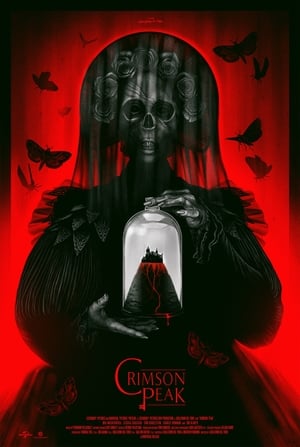 10.0
10.0I Remember Crimson Peak(en)
Four segments that breakdown the filmmaking process of Crimson Peak.
 0.0
0.0Hidden Era(pt)
Era Oculta – “Hidden Era” unfolds in the vibrant city of Maputo, where Rastafari artist Phambi fights with securing his son’s education amidst the rhythmic beats of Mozambique. Constantly on the brink of expulsion due to payment delays, Phambi’s artistic journey becomes a compelling narrative, showcasing the challenges and triumphs of an artist navigating the unique landscape of Mozambique. The film amidst the vibrant art scene, two young women, allies to Phambi, play a pivotal role in supporting his artistic endeavors. They willingly pose for him, adding depth and inspiration to his creations. Their presence in the film not only highlights the collaborative spirit within the artistic community but also brings a nuanced perspective to the narrative, reflecting the diverse voices that contribute to the cultural tapestry of Maputo.
 6.7
6.7A Dad for Christmas(en)
Matt, a 19-year-old student, goes to the hospital to see his newborn son. He learns his girlfriend plans to put the baby up for adoption without his consent, so he takes his son to his grandmother's house to fight for custody.
Similar Movies
 0.0
0.0City of Baseball(en)
"City of Baseball" is a documentary that explores both the past and the present of the Italian baseball league in the seaside resort of Nettuno near Rome. Through league pioneers, current players, fans, and local historians, "City of Baseball" captures the story of how the 1944 Allied invasion of Nettuno brought the American pastime to a town which embraced the sport with a passion that continues today.
 6.9
6.9Olympia: Part One – Festival of the Nations(de)
Commissioned to make a propaganda film about the 1936 Olympic Games in Germany, director Leni Riefenstahl created a celebration of the human form. This first half of her two-part film opens with a renowned introduction that compares modern Olympians to classical Greek heroes, then goes on to provide thrilling in-the-moment coverage of some of the games' most celebrated moments, including African-American athlete Jesse Owens winning a then-unprecedented four gold medals.
 6.7
6.7Olympia: Part Two – Festival of Beauty(de)
Commissioned to make a propaganda film about the 1936 Olympic Games in Germany, director Leni Riefenstahl created a celebration of the human form. Where the two-part epic's first half, Festival of the Nations, focused on the international aspects of the 1936 Olympic Games held in Berlin, part two, The Festival of Beauty, concentrates on individual athletes such as equestrians, gymnasts, and swimmers, climaxing with American Glenn Morris' performance in the decathalon and the games' majestic closing ceremonies.
 8.2
8.2Night and Fog(fr)
Filmmaker Alain Resnais documents the atrocities behind the walls of Hitler's concentration camps.
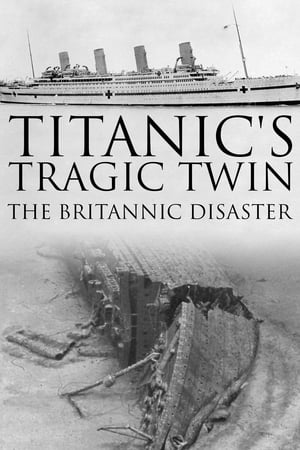 6.6
6.6Titanic's Tragic Twin: The Britannic Disaster(en)
Documentary about the sinking of the Britannic during the First World War, examining how she ultimately came to suffer the same fate as her sister ship, the Titanic. The Titanic sank in April 1912, and her sister ship, the Britannic, ultimately suffered the fate, sinking in 1916 due to an explosion caused by an underwater mine. In the wake of the Titanic disaster, Britannic was re-engineered to be even stronger. And yet she sank in just 55 minutes - three times faster than Titanic. It's one of Britain's greatest untold disaster stories. Now on the 100th anniversary, presenters Kate Humble and Andy Torbet piece together exactly what happened in those 55 minutes. While Andy makes a dangerous dive to the wreck, Kate speaks to descendants of the survivors. The characters she uncovers include Violet 'Miss Unsinkable' Jessops, who survived both Titanic and Britannic, Captain 'Iceberg Charlie' Bartlett and lookout Archie Jewell, who miraculously survived while those around him died.
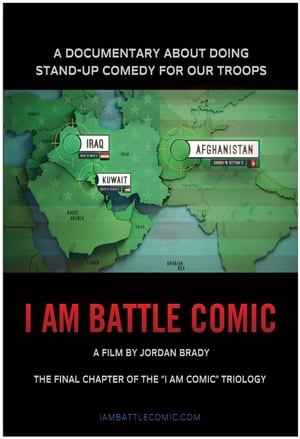 9.0
9.0I Am Battle Comic(en)
A comedy documentary about performing stand-up comedy for U.S. Troops stationed in Afghanistan, Kuwait and Iraq. Heartfelt interviews with top professional comedians are woven in with filmmaker Jordan Brady's first-hand experience going to the Middle East. While traveling (Spring 2016) brutal terrorist attacks in Brussels, Turkey and Iraq remind us of the dangers in thew world, and underscore the mission to provide laughter for the men and women serving the military.
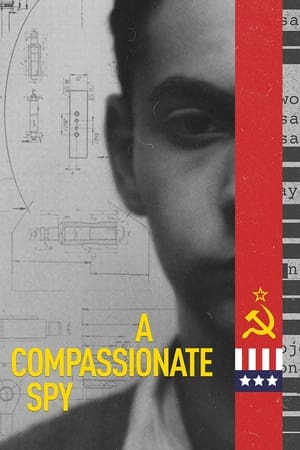 6.3
6.3A Compassionate Spy(en)
Physicist Ted Hall is recruited to join the Manhattan Project as a teenager and goes to Los Alamos with no idea what he'll be working on. When he learns the true nature of the weapon being designed, he fears the post-war risk of a nuclear holocaust and begins to pass significant information to the Soviet Union.
 0.0
0.0Elie Wiesel Goes Home(hu)
A documentary chronicling the adolescent years of Elie Wiesel and the history of his sufferings. Eliezer was fifteen when Fascism brutally altered his life forever. Fifty years later, he returns to Sighetu Marmatiei, the town where he was born, to walk the painful road of remembrance - but is it possible to speak of the unspeakable? Or does Auschwitz lie beyond the capacity of any human language - the place where words and stories run out?
 6.6
6.62 or 3 Things I Know About Him(de)
What would your family reminiscences about dad sound like if he had been an early supporter of Hitler’s, a leader of the notorious SA and the Third Reich’s minister in charge of Slovakia, including its Final Solution? Executed as a war criminal in 1947, Hanns Ludin left behind a grieving widow and six young children, the youngest of whom became a filmmaker. It's a fascinating, maddening, sometimes even humorous look at what the director calls "a typical German story." (Film Forum)
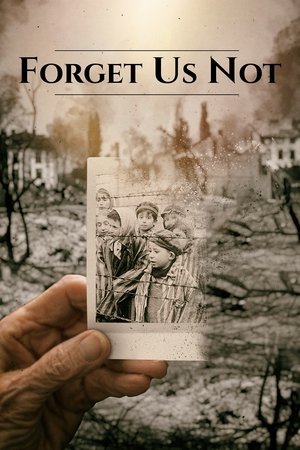 6.7
6.7Forget Us Not(en)
An in depth look at the persecution and subsequent death of the 5 million non Jewish victims of the World War II Holocaust and the lives of those who survived. Through stories of survivors and historical footage, these lesser known voices are brought to life. From the Roma and Sinti people who were also targeted for complete annihilation to the thousands of Catholic Priests who were killed for speaking out, Forget Us Not strives to educate and give tribute to those who were killed for their religion, ethnicity, political views, sexual orientation and physical handicaps.
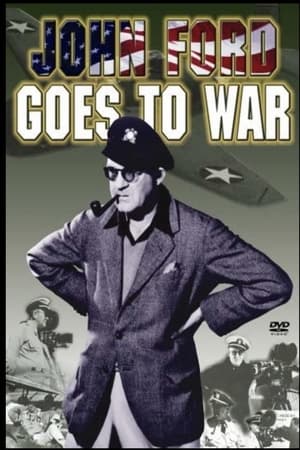 5.7
5.7John Ford Goes to War(en)
When World War II broke out, John Ford, in his forties, commissioned in the Naval Reserve, was put in charge of the Field Photographic Unit by Bill Donavan, director of the soon-to-be-OSS. During the war, Field Photo made at least 87 documentaries, many with Ford's signature attention to heroism and loss, and many from the point of view of the fighting soldier and sailor. Talking heads discuss Ford's life and personality, the ways that the war gave him fulfillment, and the ways that his war films embodied the same values and conflicts that his Hollywood films did. Among the films profiled are "Battle of Midway," "Torpedo Squadron," "Sexual Hygiene," and "December 7."
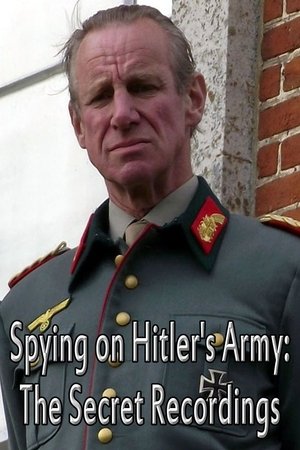 9.5
9.5Spying on Hitler’s Army: The Secret Recordings(en)
British intelligence undertook an audacious operation to listen in on the private conversations of 10,000 German prisoners of war without their ever knowing they were being overheard. The prisoners' unguarded reminiscences and unintentional confessions have only just come to light, and prove how closely the German army were involved in the atrocities of the Holocaust. British intelligence requisitioned three stately homes for this epic task, and converted each into an elaborate trap. The 100,000 hours of conversation they captured provided crucial intelligence that changed the course of the war, and revealed some of its worst horrors, from rape to mass executions to one of the earliest bulletins from the concentration camps. But when the fighting ended, the recordings were destroyed and the transcripts locked away for half a century. Only now have they been declassified, researched and cross-referenced.
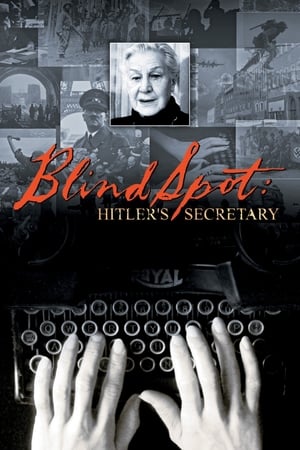 6.4
6.4Blind Spot: Hitler's Secretary(de)
Documentarians Andre Heller and Othmar Schmiderer turn their camera on 81-year-old Traudl Junge, who served as Adolf Hitler's secretary from 1942 to 1945, and allow her to speak about her experiences. Junge sheds light on life in the Third Reich and the days leading up to Hitler's death in the famed bunker, where Junge recorded Hitler's last will and testament. Her gripping account is nothing short of mesmerizing.
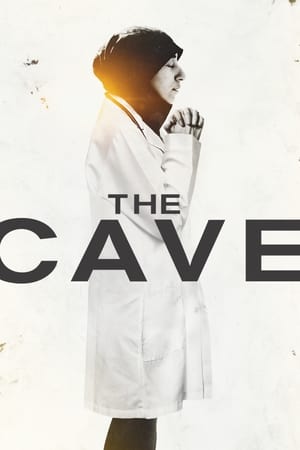 7.3
7.3The Cave(en)
Deep beneath the surface in the Syrian province of Ghouta, a group of female doctors have established an underground field hospital. Under the supervision of paediatrician Dr. Amani and her staff of doctors and nurses, hope is restored for some of the thousands of children and civilian victims of the ruthless Syrian civil war.
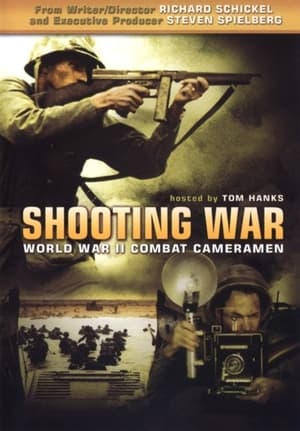 5.9
5.9Shooting War(en)
A remarkable film that takes a special look at the first war to be truly reported and recorded by one of the more unsung heroes of World War II: the combat photographer. Through the unflinching eye of their camera's lenses, these courageous soldiers continually risked their lives in their brave attempts to capture history.
 6.1
6.1The Case of Bruno Lüdke(de)
The incredible story of Bruno Lüdke (1908-44), the alleged worst mass murderer in German criminal history; or actually, a story of forged files and fake news that takes place during the darkest years of the Third Reich, when the principles of criminal justice, subjected to the yoke of a totalitarian system that is beginning to collapse, mean absolutely nothing.
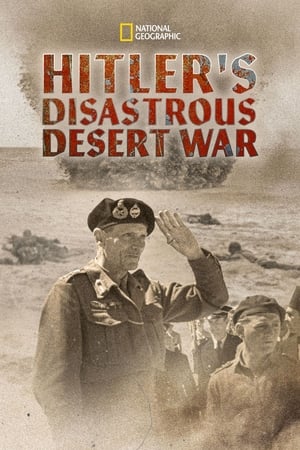 7.5
7.5Hitler's Disastrous Desert War(en)
When the British army looks set to defeat Mussolini’s Italian forces, Hitler sends reinforcements; the Afrika Korps led by General Rommel. The Desert Fox is on winning form until Montgomery, the British commander, sets up a plan to crush his opponent. After the American landing in North Africa, the Axis armies have no choice but to surrender and put an end to the Desert War.
 5.0
5.0The Hawker Hurricane(en)
The Hawker Hurricane was the first fighter monoplane to join the Royal Air Force and the first combat aircraft adopted by that arm capable of exceeding 300 mph in level flight. The Hurricane shouldered the lion s share of Britain s defence during the Battle of Britain. This program portrays the history of this legendary aircraft which was to form an immortal partnership during the infamous battle.
 7.1
7.1Fahrenheit 9/11(en)
Michael Moore's view on how the Bush administration allegedly used the tragic events on 9/11 to push forward its agenda for unjust wars in Afghanistan and Iraq.


